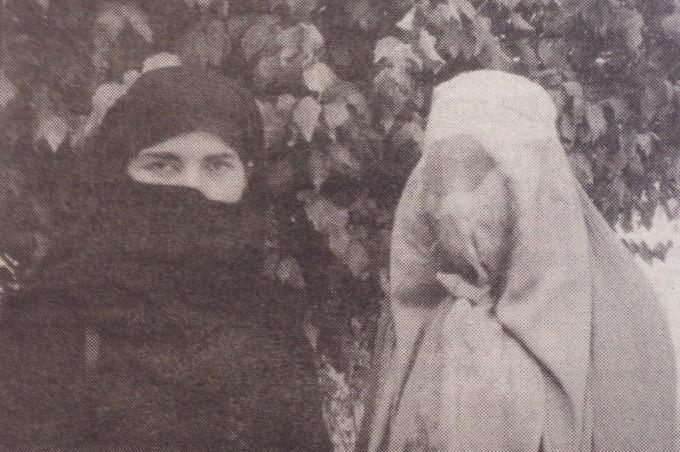By Taeeba Sadar
Despite international assurances of freedom and equality following the collapse of the Taliban, women in Afghanistan remain trapped in a society that denies them their basic human rights and needs, says Canadian Journalism Sally Armstrong.
Armstrong spoke at CBC Newsworld’s DocFest 03 on Feb. 26 for the world premiere of her new documentary, Daughters of Afghanistan.
“Fundamentalists have regained power,” Armstrong told the audience. “It’s not the Taliban, but it’s a different sect and the world community has stood by and watched that happen.”
The film documents the lives of five different Afghan women and discusses the challenges facing the women’s rights movement in the country. In particular, Armstrong’s new film profiles the work of Dr. Sima Samar, a woman belonging to the minority Hazara ethnic group, who was placed in charge of women’s affairs and also appointed Afghanistan’s deputy prime minister in December, 2001. It was the highest political post ever assumed by a woman in Afghanistan. However, Samar’s tenure was short- ived. She was barred from joining the new cabinet, which was formed last year, after being accused of making statements against Islamic law.
Reports by human rights organizations such as Human Rights Watch warn of the new threats posed by rival warlords, who have renewed fighting in many parts of the country. Many Afghan women still fear for their physical safety and the organization has documented widespread abuses. Beyond Kabul, these warlords have also imposed Taliban-era edicts on women.
In a separate interview following her public lecture, Armstrong was candid about the dangers they face.
“In the western city of Heart where Ismail Khan is governor or warlord, women have been told they cannot drive a car,” said Armstrong. “They cannot work for a foreign NGO and they can’t wear brightly coloured dresses. Women who are seen with a man are being forced to have gynaecological examinations to prove that they are still virgins.”
Armstrong, who is currently editor-at-large at Chatelaine magazine and a contributing editor at MacLean’s magazine, first travelled to Afghanistan in 1996, while editor of Homemaker’s magazine. She was one of the first journalists to being reporting on the plight of Afghan women and has made several trips to the country and was there most recently as UNICEF Canada’s Special Representative. She has written extensively on the plight of women and girls in war zones including Bosnia, Rwanda and Somalia. Her book Veiled Threat: The Hidden Power of the Women of Afghanistan was published last year, and earlier this month Armstrong was handed Amnesty International’s Print award for her work and activism on behalf of women around the world.
Now she fears that the difficulties plaguing Afghanistan will be overshadowed yet again as the world revisits another old conflict.
“The international community has proven that in a middle of a rescue they will move like a school of minnows, suddenly and all together to a new feeding ground,” she said. “And now Iraq is the new feeding ground.”
Armstrong believes that health care and education are the crucial prerequisites for meaningful change in Afghanistan and wants to see women participating in the political process.
“In zones of conflict, women are interested in policy not power,” she said. “Women are interested in peace rather than owning a piece of turf.”










Leave a Reply